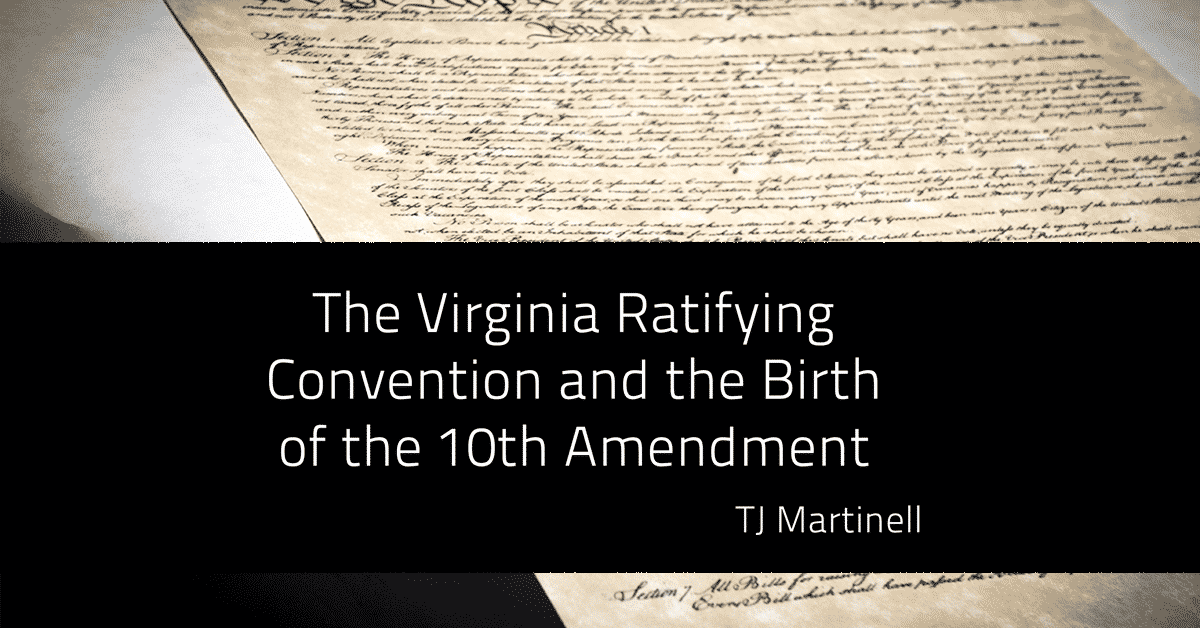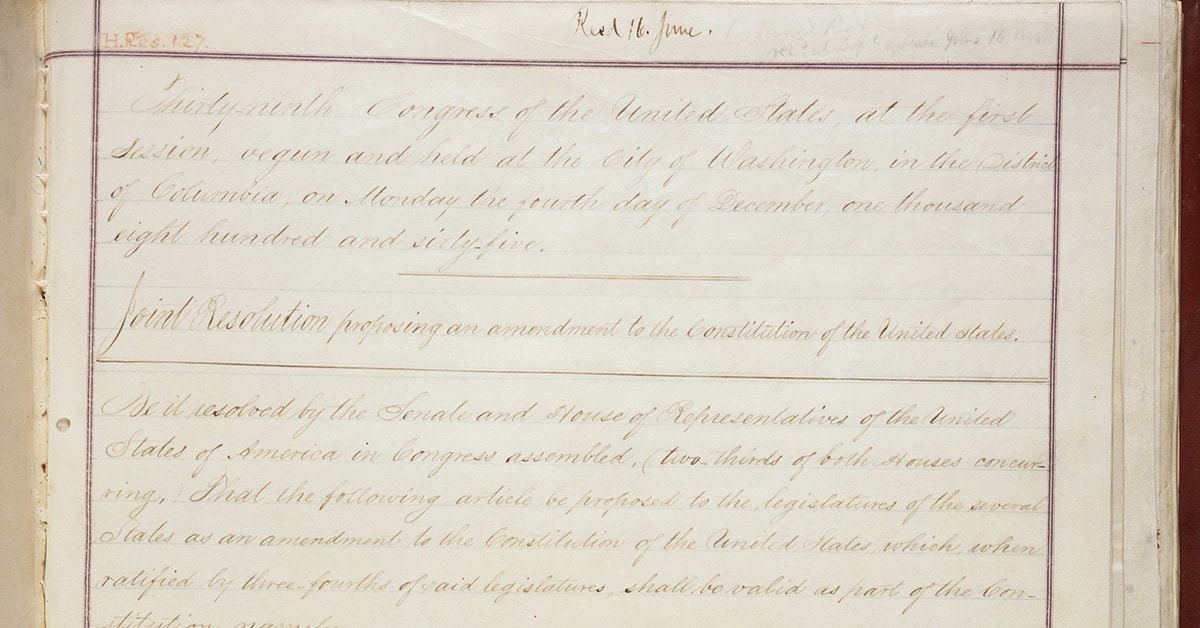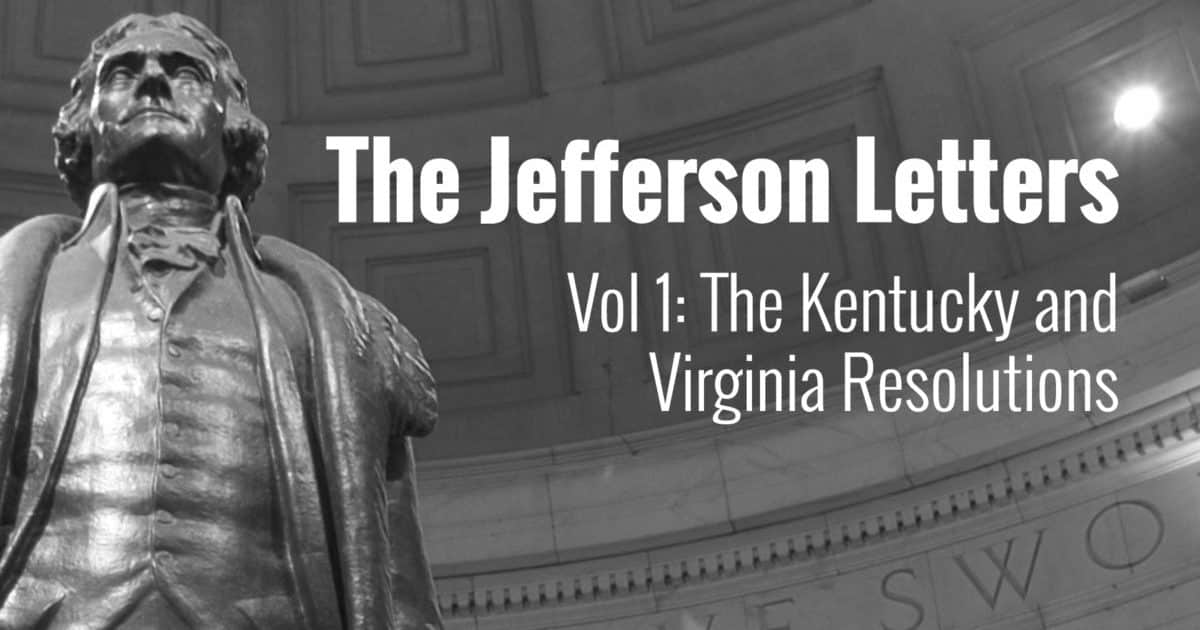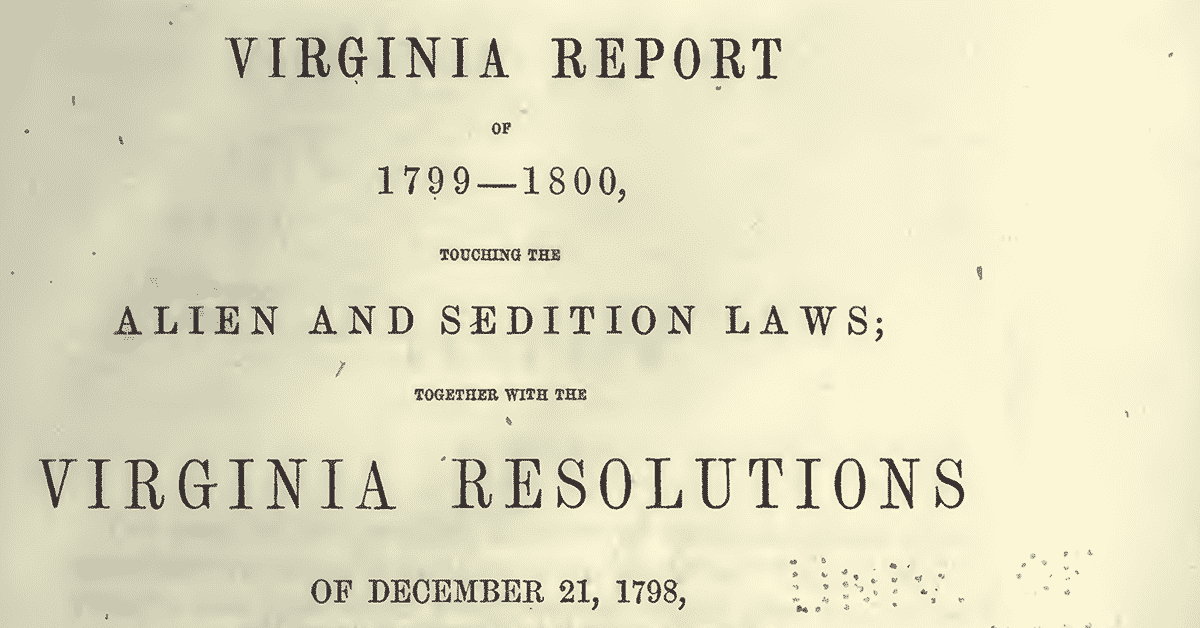The Constitution.
Every issue, every time. No exceptions, no excuses. Email NewsletterBecome a MemberThe Tenth Amendment:
“The powers not delegated to the United States by the Constitution, nor prohibited by it to the States, are reserved to the States respectively, or to the people.”
The Fight is Still On
Latest Featured Articles

Edmund Randolph vs the National Bank

The Steady Slide Towards Tyranny: How Freedom Dies from A to Z

Sovereignty and Agency

SCOTUS Defends Property Rights, but Raises Constitutional Questions
From the Blog
- The Constitution vs the National Bank: Edmund Randolph’s Analysisby Michael Boldin on May 3, 2024 at 10:16 pm
George Washington asked his attorney general to give his opinion on whether he felt Alexander […]
- Now in Effect: Utah Law Authorizes State Gold and Silver Reservesby Mike Maharrey on May 3, 2024 at 12:46 pm
SALT LAKE CITY, Utah (May 3, 2024) – On Wednesday, a Utah law creating a process for the state to […]
- Now in Effect: Utah Law Excludes CBDC from State Definition of Legal Tenderby Mike Maharrey on May 2, 2024 at 3:27 pm
The new law specifies that “a central bank digital currency is not specie legal tender and is not […]
- Louisiana House Unanimously Passes Bill To Legalize Limited Raw Milk Salesby Alan Mosley on May 2, 2024 at 2:53 am
The legislation would allow farmers to sell unpasteurized cow and goat milk directly to consumers. […]
STATE OF THE NULLIFICATION MOVEMENT
Latest Videos
[yotuwp type=”channel” id=”UCE1KT9DTZCQtf3PmAmWwOIA” ]
JOIN TAC, Support Liberty!
CONSTITUTION 101

The 10th Amendment: History, Purpose and Impact

The Supremacy Clause

Nullification

The Commerce Clause

Necessary and Proper Clause

General Welfare Clause
FREE EBOOKS
The Virginia Ratifying Convention and the Birth of the 10th Amendment
While the essays found in the Federalist Papers provide an intellectual argument in favor of the Constitution, it was at the conventions where its supporters had to confront the specific concerns of skeptics and opponents. Of all them all, the Virginia Ratifying Convention – held June 2-27, 1788 – may offer the best insight into what kind of government the Constitution created.
The 14th Amendment and the Incorporation Doctrine
Gaining a complete grasp on the 14th Amendment is one of the more mind-boggling and complicated aspects of constitutional interpretation. It is also one of the most important, and anybody embarking on a thorough study of history will likely formulate contempt toward the impulses of modern judicial orthodoxy.
The Jefferson Letters, Vol. 1: The Kentucky and Virginia Resolutions
As Thomas Jefferson and James Madison strategized on how to address the Alien and Sedition Acts, they corresponded by mail, discussing their ideas. Ten key letters give further insight into their strategy. Their correspondence reveals that the resolutions were merely intended to serve as a starting point, setting the stage for additional, more aggressive steps to stop the federal overreach.
The Constitution and the Report of 1800
James Madison composed a document commonly known as the Virginia Report of 1800. While it was specifically written as a defense of the Virginia Resolutions of 1798, a close reading of the report provides a detailed analysis and keen insights into several of these key constitutional issues. Madison effectively obliterated arguments apologists for federal power were using to justify ignoring the First Amendment, separation of powers, and other constitutional provisions meant to limit federal authority.
NEWSLETTER
MODEL LEGISLATION




